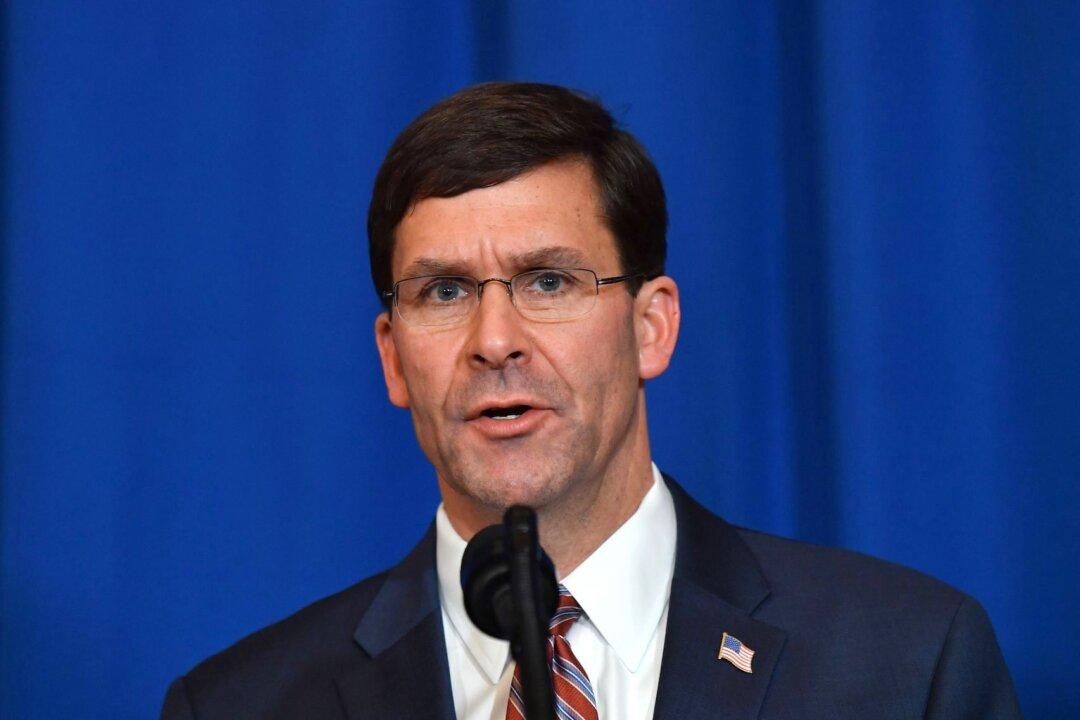The United States doesn’t expect more Iranian retaliatory attacks after the regime fired missiles at U.S. troops stationed in Iraq last week, Secretary of Defense Mark Esper said in an interview.
Esper said that Tehran is now under internal threat from demonstrators after the regime said over the weekend it accidentally shot down a Ukrainian International Airlines plane last week, killing 176 people—including 82 Iranians. Following the admission, throngs of protesters poured into the streets of Tehran, with people openly criticizing the government.





